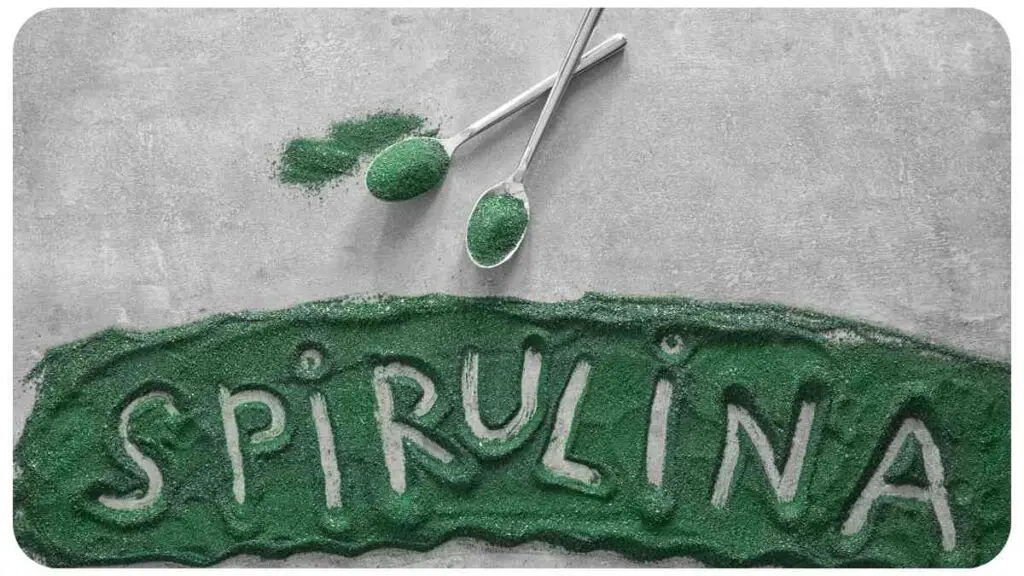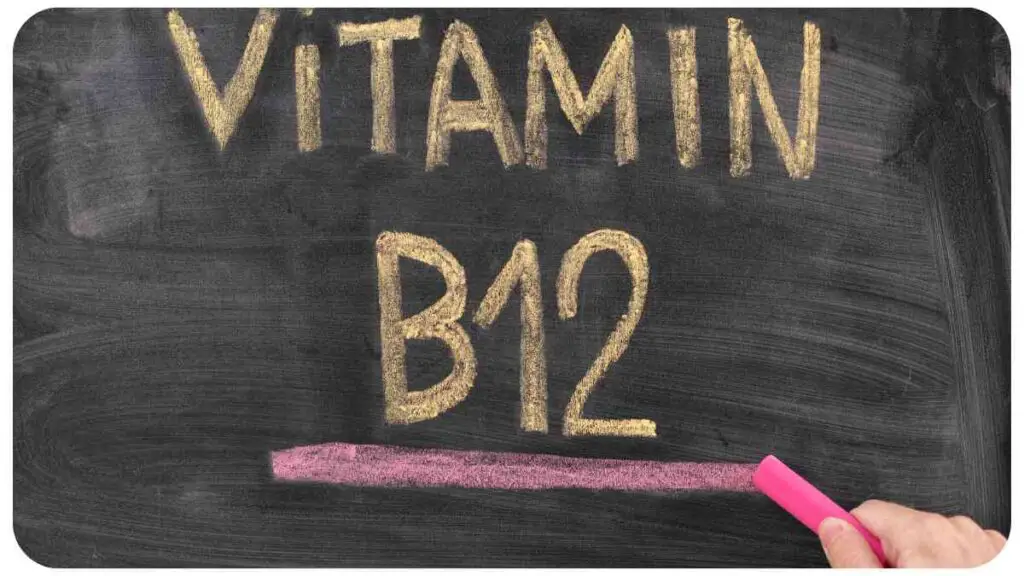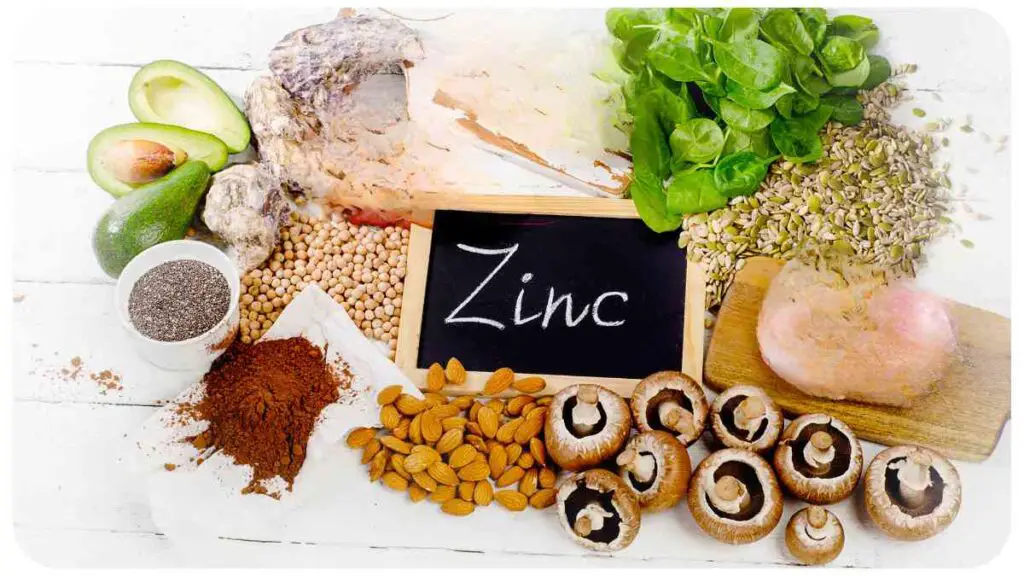As veganism continues to gain popularity, many people are embracing this plant-based lifestyle. However, one common question that arises is whether vegans need supplements to meet their nutritional requirements. In this article, we will explore the topic in depth and provide you with valuable insights and recommendations.
| Takeaways |
|---|
| Vegan supplements can help bridge nutrient gaps in a plant-based diet. |
| Consulting a healthcare professional is recommended before starting any new supplement regimen. |
| Reading supplement labels thoroughly can help in making informed decisions. |
| Exploring natural food sources is important to obtain essential nutrients. |
| Combination supplements can simplify the supplementation regimen. |
| Proper integration of supplements into a vegan diet can enhance their benefits. |
| Vegan supplements can support optimal health, energy levels, immune function, and brain health. |
| Vegan supplements provide long-term health benefits and contribute to overall well-being. |
| Understanding the specific nutrient needs of vegans is crucial for selecting the right supplements. |
| Optimal nutrient intake can be achieved through a combination of proper diet and supplementation. |
2. Understanding Vegan Nutrition
To understand whether vegans need supplements, it is crucial to delve into the key nutrients that may be lacking in a plant-based diet and the challenges associated with obtaining them from vegan sources.
“Veganism is the future of food,” state experts in sustainable vegan lifestyle. With growing concerns over environmental impact and health, embracing a plant-based diet is crucial for a sustainable future.
2.1 Key Nutrients for Vegans

A well-planned vegan diet can provide all necessary nutrients, but there are a few nutrients that may require extra attention, including:
- Vitamin B12: This essential nutrient is mainly found in animal products, and vegans are often advised to supplement it.
- Omega-3 Fatty Acids: While plant-based sources like flaxseeds and chia seeds provide alpha-linolenic acid (ALA), supplementation with EPA and DHA may be beneficial for optimal omega-3 status.
- Iron: Plant-based iron sources are abundant, but the iron from plant foods (non-heme iron) is not as readily absorbed as the iron from animal sources.
- Calcium: Plant sources like leafy greens, nuts, and seeds offer calcium, but obtaining adequate amounts may require careful planning.
- Vitamin D: Vegans may have difficulty obtaining enough vitamin D, as most food sources are of animal origin. Adequate sunlight exposure and supplementation are options.
- Zinc: While legumes, whole grains, and nuts contain zinc, it is less bioavailable from plant sources, necessitating attention to intake.
2.2 Challenges of Vegan Diets
Meeting your nutritional needs through a vegan diet involves thoughtful planning. Some challenges you may encounter include:
- Limited food variety: Depending on food availability and personal preferences, some nutrients may be more difficult to obtain in sufficient amounts.
- Bioavailability of nutrients: Nutrients like iron and zinc may not be as readily absorbed from plant-based sources, requiring higher intake or strategic combinations.
- Potential nutrient imbalances: In the absence of careful planning, certain nutrients may be overconsumed while others may fall short, leading to imbalances.
Now that we have explored the importance of these key nutrients and the challenges they present, let’s move on to exploring vegan supplement options.
According to scientific research, a vegan diet offers incredible health benefits. Experts confirm that plant-based eating can lower the risk of chronic diseases while promoting overall wellness and longevity.
3. Exploring Vegan Supplement Options
Vegan supplements can bridge the nutrient gaps that may arise from a plant-based diet. Let’s examine some essential supplements that vegans commonly consider.
3.1 Vitamin B12

Table: Vegan Sources of Vitamin B12
| Brand | Product | Dosage |
| PureVegan | B12 Spray | 500mcg/spray |
| Garden of Life | B12 Vitamin | 1000mcg |
| Deva Vegan | Vegan B12 Sublingual | 1000mcg |
Vitamin B12 is critical for overall health and can be found in various vegan-friendly supplements. It is recommended to consult your healthcare professional for guidance on the appropriate dosage and frequency.
3.2 Omega-3 Fatty Acids
Table: Vegan Omega-3 Supplements
| Brand | Product | Dosage |
| Nordic Naturals | Algae Omega | 715mg DHA |
| Testa | Omega-3 Algae Oil | 450mg EPA, 300mg DHA |
| Ovega-3 |
| Brand | Product | Dosage |
| Nordic Naturals | Algae Omega-D3 | 1000mg DHA, 2000IU Vitamin D3 |
| Deva Vegan | Omega-3 DHA-EPA | 200mg DHA, 100mg EPA |
| V-Pure | Omega-3 Plant Based DHA | 400mg DHA |
Omega-3 supplements derived from algae are a popular choice among vegans. They provide the necessary EPA and DHA fatty acids typically found in fish oil.
3.3 Iron
Table: Vegan Iron Supplements
| Brand | Product | Dosage |
| MegaFood | Blood Builder | 26mg iron |
| Floradix | Iron + Herbs | 10mg iron |
| VegLife | Vegan Iron Chewable | 18mg iron |
Supplementing with iron can be important for vegans, especially for women of childbearing age. It is worth considering iron-rich plant foods in combination with supplements for optimal absorption.
3.4 Calcium
Table: Vegan Calcium Supplements
| Brand | Product | Dosage |
| Garden of Life | Plant Calcium Plus | 1000mg calcium |
| Now Foods | Calcium and Magnesium | 1000mg calcium, 500mg magnesium |
| Dr. Fuhrman | Osteo-Sun | 1000mg calcium, 1000IU vitamin D3 |
To ensure sufficient calcium intake, vegans can rely on calcium-fortified plant-based milks, tofu, and leafy greens. Supplements can also provide additional support if needed.
Dive into the comprehensive guide for living a sustainable vegan lifestyle, and discover practical tips for reducing your carbon footprint, ethical shopping, and making mindful choices for the planet.
3.5 Vitamin D
Table: Vegan Vitamin D Supplements
| Brand | Product | Dosage |
| Nordic Naturals | Vitamin D3 Vegan | 1000IU vitamin D3 |
| Garden of Life | Vitamin Code Raw D3 | 2000IU vitamin D3 |
| Now Foods | Vegan Vitamin D3 | 5000IU vitamin D3 |
Vitamin D is crucial for bone health and immune function. Since it is primarily obtained from animal sources, vegan-friendly supplements can help fill the gap.
3.6 Zinc

Table: Vegan Zinc Supplements
| Brand | Product | Dosage |
| Garden of Life | Vitamin Code Raw Zinc | 30mg zinc |
| Now Foods | Zinc Picolinate | 50mg zinc |
| MegaFood | Zinc Tablets | 22.5mg zinc |
Zinc plays a vital role in immune function and other physiological processes. Vegans can obtain zinc from plant-based sources or consider supplementation if needed.
By incorporating these vegan supplement options into your diet, you can ensure that you don’t miss out on essential nutrients. In the next section, we will discuss the benefits of using vegan supplements.
4. Benefits of Vegan Supplements
Supplementing a vegan diet with the necessary nutrients offers several advantages.
4.1 Ensuring Nutritional Adequacy
Vegan supplements can help bridge the gap between the nutrients your body needs and the nutrients you may struggle to obtain solely from plant sources. They act as safeguards to ensure you meet your nutritional requirements without compromise.
Explore the best vegan-friendly cities in the world. From plant-based eateries to eco-conscious communities, these cities provide an abundance of options for vegans and plant enthusiasts to enjoy.
4.2 Supporting Optimal Health
Proper supplementation can support optimal health, especially when it comes to nutrients that may be challenging to obtain consistently or sufficiently from plant-based foods. Vegan supplements aid in maintaining overall well-being.
In addition to the benefits mentioned above, vegan supplements can provide other advantages:
4.3 Enhanced Energy Levels
When your body receives all the essential nutrients it requires, you are more likely to experience increased energy levels throughout the day. Vegan supplements can help prevent deficiencies that might result in fatigue or low energy.
4.4 Improved Immune Function
By ensuring adequate intake of key nutrients, such as vitamin C, vitamin D, and zinc, vegan supplements can strengthen your immune system. This can help protect against common illnesses and promote overall immune health.
4.5 Optimal Brain Function
Certain nutrients, like omega-3 fatty acids and vitamin B12, play a vital role in supporting brain health and cognitive function. By supplementing with these nutrients, vegans can ensure that their brains receive the necessary nourishment.
4.6 Long-Term Health Benefits
Consistently meeting your nutritional needs through appropriate supplementation can contribute to long-term health benefits. From supporting bone health and cardiovascular function to reducing the risk of certain chronic diseases, vegan supplements can have a significant impact on your overall well-being.
Now that we have explored the benefits of vegan supplements, let’s move on to discussing how to choose the right supplements for your individual needs.
Support the cause and get involved in the advocacy for animal rights. Learn about the top 15 animal rights organizations that make a difference and work towards creating a compassionate world for animals.
5. Choosing the Right Vegan Supplements
When selecting vegan supplements, it is crucial to consider a few important factors to ensure you are choosing the right ones for your specific requirements.
5.1 Quality and Purity
Look for supplements from reputable brands that undergo rigorous testing to ensure quality and purity of ingredients. Third-party certifications, such as NSF or USP, can provide additional reassurance of a product’s quality.
5.2 Proper Dosages
Consult with a healthcare professional to determine the appropriate dosage for each supplement based on your individual needs. Factors such as age, sex, and health conditions can influence the recommended dosage.
5.3 Considerations for Specific Needs
If you have specific health concerns or dietary restrictions, such as gluten intolerance or allergies, make sure to choose supplements that are suitable for your needs. Read product labels carefully and look for any potential allergens or ingredients to avoid.
In the following section, we will discuss how you can seamlessly integrate vegan supplements into your plant-based diet.
6. Integrating Supplements Into a Vegan Diet
Proper integration of supplements into your vegan diet can help you maximize their benefits and ensure optimal nutrient absorption.
6.1 Timing and Administration
Follow the instructions provided by the supplement manufacturer regarding timing and administration. Some supplements may need to be taken with meals, while others may require separate timing or a specific dosage frequency.
6.2 Meal Planning
Consider incorporating food sources that naturally contain the nutrients you are supplementing with into your daily meals. For example, if you are taking an iron supplement, pair it with foods rich in vitamin C to enhance iron absorption.
6.3 Tracking Nutrient Intake
Maintaining a food diary and tracking your nutrient intake can help you identify any gaps or areas where you may be falling short. This can help you adjust your diet or supplementation accordingly to ensure adequate nutrient balance.
Now that we’ve discussed integrating supplements into a vegan diet, let’s dive into some expert tips and recommendations that can further enhance your supplementing experience.
7. Expert Tips and Recommendations
7.1 Consulting a Healthcare Professional
Before starting any new supplement regimen, it is always advisable to consult with a healthcare professional. They can assess your individual needs, provide personalized recommendations, and monitor your progress.
7.2 Reading Supplement Labels
Make it a habit to thoroughly read supplement labels. Look for transparency in ingredient sourcing, dosages, and allergen information. Understanding what you are consuming is essential for making informed decisions.
7.3 Exploring Natural Food Sources
While supplements can be valuable additions to your vegan diet, they should not replace the benefits of consuming whole, plant-based foods. Explore diverse natural food sources to obtain nutrients and strive for a well-rounded diet.
7.4 Considering Combination Supplements
If taking multiple individual supplements feels overwhelming, consider combination supplements that provide a blend of key nutrients. This can simplify your regimen and make it easier to ensure comprehensive nutrient coverage.
In conclusion, vegan supplements can play a crucial role in supporting the nutritional needs of individuals following a plant-based lifestyle. They can bridge nutrient gaps, enhance energy levels, support optimal health, and offer long-term benefits. By choosing high-quality supplements, integrating them thoughtfully into your diet, and seeking expert advice when needed, you can optimize your vegan journey and thrive in your commitment to a compassionate and healthful lifestyle.
8. Conclusion
In this comprehensive article, we have explored the topic of vegan supplementation in-depth. We began by understanding vegan nutrition, including key nutrients and the challenges faced in obtaining them solely from plant-based sources.
Further Reading
Here are some additional resources to explore for further information on vegan nutrition and supplementation:
Do Vegans Need Vitamins?: This article provides insights into the key vitamins that vegans may need to pay attention to and offers recommendations for meeting these nutritional needs.
Vegan Nutritional Needs: This comprehensive guide explores the vitamins and minerals that are essential for vegans and provides practical tips on how to obtain them through diet or supplementation.
Vegetarian and Vegan Eating: This resource from Better Health Victoria provides information on the nutritional considerations for vegetarians and vegans, including advice on meeting nutrient requirements and the benefits of plant-based diets.
FAQs
Here are some frequently asked questions about vegan supplementation:
Do vegans need to take vitamin B12 supplements?
Yes, vitamin B12 supplementation is generally recommended for vegans, as it is primarily found in animal-based foods. Vegans can obtain vitamin B12 through fortified foods or supplements.
Can a vegan diet provide enough iron?
A vegan diet can provide sufficient iron, but the absorption of iron from plant-based sources is lower compared to animal sources. It is important for vegans to consume iron-rich plant foods and consider supplementation if needed.
Are there vegan sources of omega-3 fatty acids?
While the primary sources of omega-3 fatty acids are fish and fish oil, vegans can obtain these essential fats from algae-based supplements, flaxseeds, chia seeds, and walnuts.
Should vegans take calcium supplements?
Vegans can obtain calcium from plant-based sources such as leafy greens, nuts, and fortified plant milks. However, if calcium intake is inadequate, supplementation may be considered to meet daily needs.
Is sunlight enough for vegans to get vitamin D?
Vitamin D can be synthesized by the body when exposed to sunlight, but the amount produced depends on factors like geographical location and skin pigmentation. Vegans may consider supplementation, especially during winter months or if sunlight exposure is limited.

Hi! My name is Hellen James, and I’m a vegan lifestyle enthusiast. I’ve been living the vegan lifestyle for over 10 years now, and it’s been one of the best decisions I’ve ever made. The food is amazing, the community is incredible, and there’s no way I could go back after experiencing all this firsthand.


